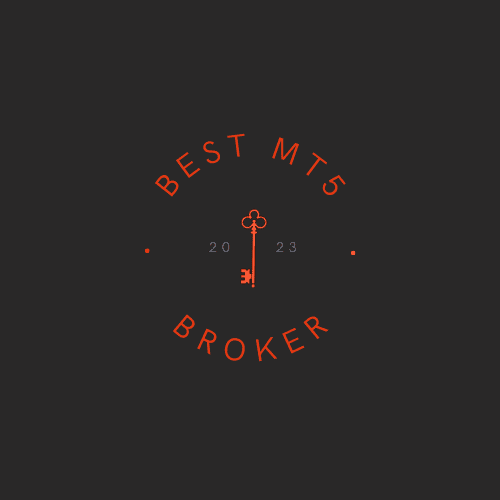
1. Forex Brokers with High Leverage: A Crucial Factor in Currency Trading.
The foreign exchange market, also known as the Forex market, with a daily trading volume of over 6 trillion US dollars, is the largest financial market in the world. The appeal of Forex trading lies not only in its size and liquidity but also in the opportunity to use leverage products to increase trading capital. Leverage allows traders to trade with a multiple of the actual account balance by depositing a margin that is only a fraction of the trade value.
High leverage can be attractive because it offers the chance for disproportionate gains, but it also increases the risk. A slight movement in the market can lead to significant gains or losses. Therefore, it is of utmost importance to choose a Forex broker that not only offers high leverage but also provides the necessary seriousness and security. A high-leverage broker must offer a stable trading platform, excellent customer support, fair fee structures, and transparent execution policies.
When comparing brokers with high leverage, it is essential to pay attention to regulation. Regulated brokers must adhere to strict guidelines that ensure customer protection. Leverage can range from 1:30 for regulated European brokers to 1:1000 or more for offshore brokers. It is important for traders to understand the risks associated with high leverage and be aware that an effective risk management strategy is crucial for long-term success.
Choosing the right broker is critical to fully exploiting the potential of leverage in Forex trading. Among the plethora of options, identifying the best MT5 broker or a high-leverage broker that aligns with your trading needs and strategies is key. In the following sections, we will examine in detail the various aspects to consider when choosing a Forex broker with high leverage.
2. Comparison of Forex Brokers with High Leverage: What to Look Out For
Choosing a Forex broker that offers high leverage is a process that requires careful consideration. A direct comparison of different providers is essential to finding a broker that supports one’s trading style and risk tolerance. The following factors should be considered in a comparison:
Regulation and licensing: A broker with recognized regulation ensures that it follows certain industry standards and operational guidelines. This is a sign of the broker’s trustworthiness and safety.
Trading conditions: In addition to leverage, spreads, commissions, and swap fees are important aspects. Tight spreads and low fees can significantly reduce trading costs and thus increase profitability.
Trading platform: A user-friendly, reliable platform is crucial. It should support technical analysis tools, charting options, and automated trading, which makes finding the best MT5 broker critical for those who prioritize these features.
Customer service: A broker should offer fast and helpful customer service, ideally around the clock and in multiple languages.
Margin requirements: These indicate how much capital is required for a particular trade size. Brokers with flexible margin requirements are allowed to adjust the leverage to the risk appetite.
Risk management tools: The availability of tools such as stop-loss orders is essential for managing the increased risk that comes with high leverage.
Execution speed: Fast order execution can make a difference in volatile markets.
Experiences of other traders: Customer reviews and ratings can provide valuable insights into the reliability and service of the broker.
A comprehensive Forex broker comparison should consider all these factors. Especially with high leverage, it is advisable not to base the choice solely on leverage, but to create an overall picture of the broker’s services and features. In the next sections, we will explain the methodology behind a comprehensive Forex broker test, as well as how to distinguish a serious provider from a non-serious one.
3. Fundamentals of Testing Forex Brokers with High Leverage
Choosing a reliable Forex broker with high leverage requires more than just a superficial comparison. A thorough examination of the services offered and market behaviour is crucial to confirm the integrity and performance of the broker. The following steps should be considered when testing a high-leverage broker:
Demo account: Opening a demo account is an indispensable step to test the broker’s platform without risk. It allows assessing the user-friendliness, execution speed, and responsiveness of customer support.
Regulatory compliance: Checking the broker’s regulatory compliance provides information about its credibility. A broker subject to strict financial regulatory authorities generally offers a higher level of security.
Trading conditions: It is important to test the broker’s trading conditions to see how the high leverage affects trades in practice. This includes analyzing the spreads, commissions, and slippage.
Customer reviews: The experiences of other traders can provide insights into the broker’s practices. Independent review platforms and forums can help to gain a clearer picture.
Customer service: Direct contact with customer service can provide information about its competence and availability. Good customer service is especially important when it comes to clarifying questions or problems.
Business model: Understand the broker’s business model – whether it acts as a market maker or as an ECN/STP broker that offers direct access to the interbank market.
Payout policies: It is advisable to also test the payout process by depositing and withdrawing smaller amounts. Pay attention to processing times and any fees.
A thorough test of a Forex broker with high leverage gives traders the confidence that their investments are in good hands. In the following discussion, we will focus on how to assess the seriousness and reliability of a broker to be successful in the Forex market in the long term.
4. Characteristics of a Serious Forex Broker with High Leverage
The credibility of a Forex broker is of particular importance when using high leverage, as the risk is as high as the profit potential. A serious broker is characterized by several key factors that ensure the trust and safety of investors.
Transparent business policy: A serious broker discloses its business terms and ensures clarity in its trading processes. This includes clear information about margin requirements, trading fees, and leverage options.
Regulation and licensing: Robust regulation by a recognized financial supervisory authority is a must. It guarantees that the broker is subject to regular audits and strict supervision that ensures the protection of investors.
Financial security: The financial stability of a broker can be demonstrated by deposit insurance systems and the separation of customer funds from the broker’s operational funds.
Responsive customer service: A reliable broker offers competent and easily accessible customer service that provides professional support in case of inquiries or problems.
Educational resources: Serious brokers invest in the education of their customers. They provide teaching materials that inform traders about the risks of high-leverage trading and help them improve their trading skills.
Technical infrastructure: Advanced trading infrastructure that allows fast and reliable trading executions is another indicator of the seriousness of a broker.
Positive user reviews: Long-term and consistently positive reviews from current and former customers can be an indication of the broker’s reliability and good reputation.
A serious Forex broker with high leverage not only offers the possibility to control larger positions in the market but also ensures that traders are well-informed about the associated risks and prepared for market fluctuations. In the next section, we will examine the bonus programs of such brokers and discuss how these can influence the trading experience.
5. Bonus Programs at Forex Brokers with High Leverage: Opportunities and Risks
Bonus systems are a widespread means by Forex brokers with high leverage to attract new customers and increase trading volume. These bonuses can take various forms and offer additional capital or benefits. However, it is important to understand the associated conditions precisely.
Welcome and deposit bonuses: Many brokers offer bonuses for opening an account or depositing funds. These bonuses increase the trading margin but can also be tied to strict withdrawal conditions.
Risk-free trades: Some brokers allow customers to make initial risk-free trades, with losses up to a certain amount being refunded. This can be a good way to test the platform without immediate risk.
Loyalty programs: Long-term customers can be rewarded through loyalty programs that offer further trading benefits such as lower spreads or cashback on trades.
Bonus terms: It is crucial to check the bonus terms. Often traders must reach a certain trading volume before bonus funds can be withdrawn, which can lead to excessive risk.
Influence on trading decisions: Bonuses should never be the main reason for trading decisions. Traders should always focus on their strategy and risk management rather than the allure of the bonus.
Careful handling of bonus offers is essential for every trader, especially when trading with high leverage. The apparent advantages can quickly become a trap if they are not used with caution and in the context of a well-thought-out trading strategy. In the next section, we will examine the importance of demo accounts at high-leverage brokers and how they enable the understanding and application of leverage strategies without financial risk.
